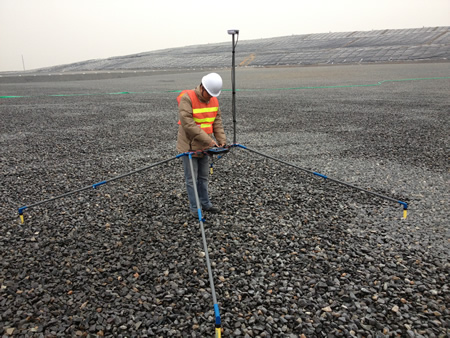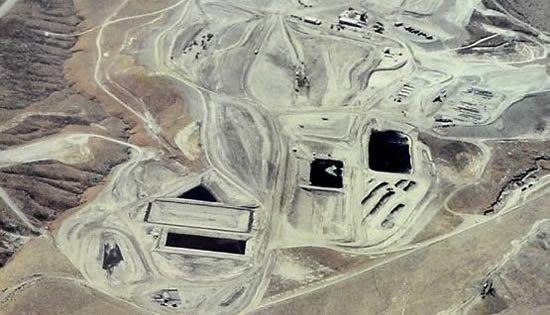In the United States, geotechnical engineering short courses often take place just ahead of the warmer months during which so much work takes place. This gives engineering firms and their personnel a chance to enhance skills and strategies for immediate implementation and better long-term planning for business and career growth. In early May, the short course calendar is highlighted by two two-day short course offerings in Austin, Texas:
- Slope Stability of Containment Systems
- Liner Integrity Survey/Assessment (LISA) Training

While these events are co-located, they are held concurrently May 7 – 8, so an attendee may only take one. Both courses are well worth consideration for business development and for strengthening skills and offerings with key sectors, including waste management, mining, industrial processing, coal ash management, and more.
REGISTER ONLINE
DOWNLOAD SHORT COURSES BROCHURE (PDF)
SLOPE STABILITY OF CONTAINMENT SYSTEMS
Slope Stability of Containment Systems: Understanding Issues Related to Design and Interface Friction Testing is part of TRI Environmental’s Short Course Training Week. The two-day course will be held May 7 – 8 and will be ;ed by Dr. Jeffrey Kuhn, P.E. and Dr. Ranjiv Gupta, P.E. The team instruction provides insight from the independent testing and geoenvironmental consulting and facility owner’s perspectives on a wide range of containment structures (e.g., municipal and hazardous waste landfills, coal ash surface impoundments, heap leach pads). These facilities are constructed using multiple layers of geosynthetic materials such as geomembranes, geotextiles, geonets, geocomposites, and geosynthetic clay liners (GCL). The design of a containment structure not only requires an understanding of the properties of each individual geosynthetic material but also the ability to comprehend the interaction mechanism (friction) between various geosynthetic layer interfaces. This understanding of interface friction between various geosynthetic layers becomes even more challenging as the interface governing the stability of slopes within a containment structure may change depending on if the project is in a construction phase, a waste filling phase, or being closed with a final cover system.

This course will be presented in two parts, each of which complements the other, to provide maximum benefit to the attendees. The first part will focus on slope stability of containment structures including an overview of sources of interface strength, the difference between peak and large displacement strength for design, the relation between normal stress and failure envelopes, and slope stability calculations.
The second part will provide an explanation of ASTM D5321, including detailed discussion of test parameters. Procedural implications of specimen anchorage, normal stress application, machine friction and calibration, rate of shear, and reporting mechanisms will be discussed. In addition, limitations of the ASTM D5321 test will be explored, with explanation of alternative tests including torsional shear, tilt table, and double interface shear. Special emphasis will be placed on specifying a meaningful shear test that will best serve the user’s project requirements. The forensic analysis of several slope failure case studies will be presented to help relate the material presented during the course with real-world applications.
LINER INTEGRITY SURVEY TRAINING
The May 7 – 8 short course on electrical leak location (liner integrity survey) for geosynthetic-lined facilities will be led by TRI Environmental’s Director of Liner Integrity Services Abigail Gilson, P.E. and supported by Jeffrey Blum, a Senior Project Manager for Weaver Consultants Group. Blum is also a seasoned graduate of the liner integrity survey training program, so can offer first-hand knowledge of incorporating these technologies into a revenue-generating channel within an engineering firm.
Industries of interest: waste management, mining, water resource conservation, lined tanks, and more.
The Liner Integrity Survey / Assessment course will focus on leak location methodologies, design parameters, equipment options, and how to enhance or add this skill within a participant’s business. Simulation of ELL surveys is included. Participants have the option to advance to a Level 2 ELIS certification through TRI Environmental. The exam for that follows the conclusion of the professional development on May 8.
RELATED: Maximizing Electrical Leak Location Effectiveness with Covered Geomembranes
The multi-part certification process has been designed for survey performers. Graduates of this program:
- Understand the basis of geo-electrical leak testing
- Select the most appropriate LISA methodology under a variety of site circumstances
- Are able to perform each LISA method
- Know how to generate LISA reports
- Have on-going access to the resources of TRI as they begin to perform surveys for clients











